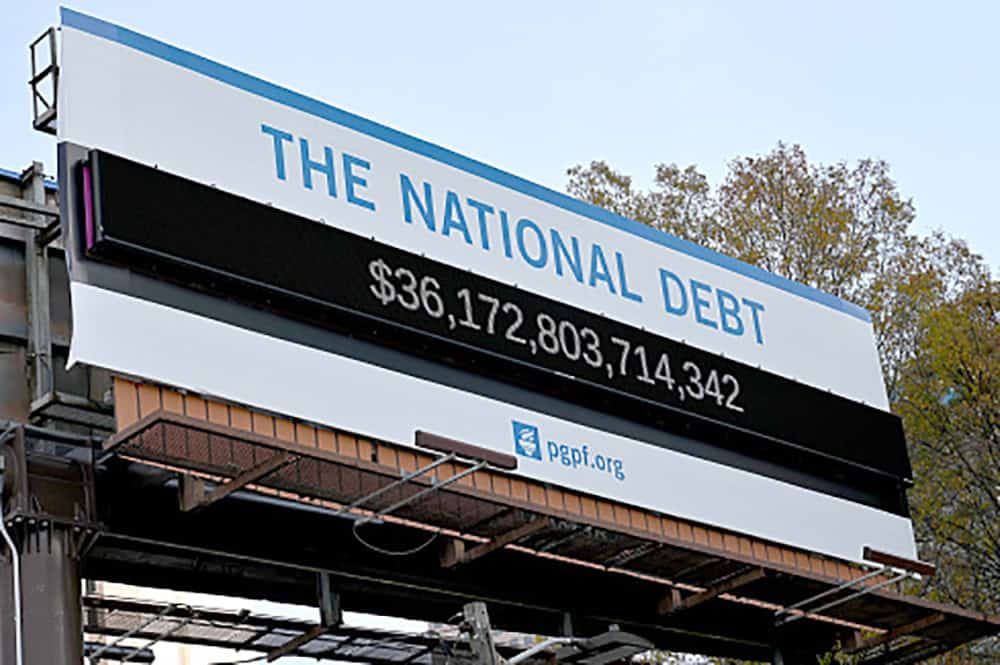Presidential Debate Highlights Fiscal Election
Last Updated June 28, 2024
One of the first questions at last night’s debate was about the national debt, and for good reason.
Host Jake Tapper cited recent nonpartisan analysis from the Committee for a Responsible Federal Budget, which showed that former President Trump approved $8.4 trillion of new ten-year borrowing during his full term in office, while President Biden, in his first three years and five months in office, approved $4.3 trillion.
With our debt outlook worsening and critical budget deadlines approaching next year, this is a fiscal election.
The leaders we elect this fall will face significant budgetary challenges and decision points during their terms on issues that matter to every American - on taxes, healthcare, Social Security, Medicare, the debt ceiling and more.
Both candidates on the debate stage last night were asked critical questions about the state of our fiscal future, the strength of our economy, and the sustainability of vital programs like Social Security.
Why does this matter?
The national debt overall is expected to exceed its high relative to the size of the economy in just three years, exceeding the previous record set shortly after World War II. Interest costs are growing rapidly, rising from $352 billion in 2021 to a projected $892 billion in 2024 — 2.5 times higher in only three years. And Social Security — which was also asked about at the debate — is on a rapid path to depletion. In fact, without reforms, in just nine years there will be a 21% automatic cut for all Social Security beneficiaries, amounting to nearly $17,000 per year for the average couple.
Recent Peterson Foundation polling, conducted jointly by Democratic firm Global Strategy Group and Republican firm North Star Opinion Research, finds that voters across party lines believe it is important to elect candidates who are committed to:
- Reducing deficits to help lower interest rates and control inflation (96% important, including 95% of Democrats and 97% of Republicans)
- Strengthening Social Security to avoid automatic cuts to beneficiaries (95% important, including 96% of Democrats and 94% of Republicans)
- Strengthening Medicare to avoid automatic cuts that impact patient care options and costs (92% important, including 96% of Democrats and 91% of Republicans)
- Reforming the U.S. tax system to improve the fiscal outlook (90%, including 91% of Democrats and Republicans) and to ensure tax fairness (92%, including 98% of Democrats and 89% of Republicans)
- Dealing with the debt ceiling responsibly, without risking economic damage (94%, including 95% of Democrats and Republicans)
- Addressing the $34 trillion national debt (92% important, including 90% of Democrats and 96% of Republicans)
As the election moves forward, voters should hold their candidates accountable to answering questions about what they will do about taxes, debt reduction, Social Security and more. Fiscal issues and the sustainability of our economy are on the ballot this November.
Photo by Andrew Harnik/Getty Images
Further Reading
The Budget Resolution Contains Optimistic Assumptions About Discretionary Spending
Future discretionary spending cuts, which cannot technically be included in reconciliation bills, are difficult to achieve as credible offsets to the increased deficits incorporated in a budget resolution.
Top 10 Reasons Why the National Debt Matters
At $36 trillion and rising, the national debt threatens America’s economic future. Here are the top ten reasons why the national debt matters.
What Are Refundable Tax Credits?
The cost of refundable tax credits has grown over the past several years, with the number and budgetary impact of the credits increasing.


